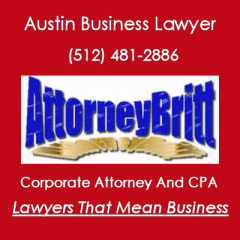From renting spare rooms and vacation homes to car rides or using a
bike…name a service and it’s probably available through the sharing
economy.
Taxpayers who participate in the sharing economy can find helpful resources in the IRS Sharing Economy Tax Center on IRS.gov.
Here are six things taxpayers should know about how the sharing economy might affect their taxes:
1. The activity is taxable.
Sharing economy activity is generally taxable. It is taxable even when:
Taxpayers who participate in the sharing economy may be able to deduct certain expenses. For example, a taxpayer who uses their car for business may qualify to claim the standard mileage rate, which is 58 cents per mile for 2019.
3. There are special rules for rentals.
If a taxpayer rents out their home or apartment, but also lives in it during the year, special rules generally apply to their taxes. Taxpayers can use the Interactive Tax Assistant tool, Is My Residential Rental Income Taxable and/or Are My Expenses Deductible? to determine if their residential rental income is taxable.
4. Participants may need to make estimated tax payments.
The U.S. tax system is pay-as-you-go. This means that taxpayers involved in the sharing economy often need to make estimated tax payments during the year. These payments are due on April 15, June 15, Sept. 15 and Jan. 15. Taxpayers use Form 1040-ES to figure these payments.
5. There are different ways to pay.
The fastest and easiest way to make estimated tax payments is through IRS Direct Pay. Alternatively, taxpayers can use the Electronic Federal Tax Payment System.
6. Taxpayers should check their withholding.
Taxpayers involved in the sharing economy who are employees at another job can often avoid making estimated tax payments by having more tax withheld from their paychecks. These taxpayers can use the Withholding Calculator on IRS.gov to determine how much tax their employer should withhold. After determining the amount of their withholding, the taxpayer will file Form W-4 with their employer to request the additional withholding.
IRS YouTube Videos:
Your Taxes in the Sharing Economy – English | ASL
For help with your legal needs contact a business, tax, and health care law attorney at the offices of AttorneyBritt.
Review-Like-Follow AttorneyBritt On:



Taxpayers who participate in the sharing economy can find helpful resources in the IRS Sharing Economy Tax Center on IRS.gov.
Here are six things taxpayers should know about how the sharing economy might affect their taxes:
1. The activity is taxable.
Sharing economy activity is generally taxable. It is taxable even when:
- The activity is only part time
- The activity is something the taxpayer does on the side
- Payments are in cash
- The taxpayer receives an information return – like a Form 1099 or Form W2
Taxpayers who participate in the sharing economy may be able to deduct certain expenses. For example, a taxpayer who uses their car for business may qualify to claim the standard mileage rate, which is 58 cents per mile for 2019.
3. There are special rules for rentals.
If a taxpayer rents out their home or apartment, but also lives in it during the year, special rules generally apply to their taxes. Taxpayers can use the Interactive Tax Assistant tool, Is My Residential Rental Income Taxable and/or Are My Expenses Deductible? to determine if their residential rental income is taxable.
4. Participants may need to make estimated tax payments.
The U.S. tax system is pay-as-you-go. This means that taxpayers involved in the sharing economy often need to make estimated tax payments during the year. These payments are due on April 15, June 15, Sept. 15 and Jan. 15. Taxpayers use Form 1040-ES to figure these payments.
5. There are different ways to pay.
The fastest and easiest way to make estimated tax payments is through IRS Direct Pay. Alternatively, taxpayers can use the Electronic Federal Tax Payment System.
6. Taxpayers should check their withholding.
Taxpayers involved in the sharing economy who are employees at another job can often avoid making estimated tax payments by having more tax withheld from their paychecks. These taxpayers can use the Withholding Calculator on IRS.gov to determine how much tax their employer should withhold. After determining the amount of their withholding, the taxpayer will file Form W-4 with their employer to request the additional withholding.
IRS YouTube Videos:
Your Taxes in the Sharing Economy – English | ASL
For help with your legal needs contact a business, tax, and health care law attorney at the offices of AttorneyBritt.
Review-Like-Follow AttorneyBritt On:
